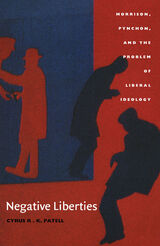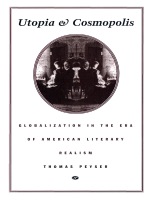The Politics of Privacy in Contemporary Native, Latinx, and Asian American Metafictions
The Ohio State University Press, 2020
Cloth: 978-0-8142-1422-0 | Paper: 978-0-8142-5600-8 | eISBN: 978-0-8142-7823-9
Library of Congress Classification PS374.P647E37 2020
Dewey Decimal Classification 810.98
Cloth: 978-0-8142-1422-0 | Paper: 978-0-8142-5600-8 | eISBN: 978-0-8142-7823-9
Library of Congress Classification PS374.P647E37 2020
Dewey Decimal Classification 810.98
ABOUT THIS BOOK | AUTHOR BIOGRAPHY | REVIEWS | TOC
ABOUT THIS BOOK
The Politics of Privacy in Contemporary Native, Latinx, and Asian American Metafictions is the first book-length study to approach contemporary issues of racialized visibility and privacy through narrative form. Using a formal maneuver, narrative privacy, Colleen G. Eils analyzes how writers of contemporary metafictions explicitly withhold stories from readers to illuminate and theorize the politics of privacy in a post–9/11 US context. As a formal device and reading strategy, narrative privacy has two primary critical interests: affirming the historically political nature of visibility, particularly for people of color and indigenous people, and theorizing privacy as a political assertion of power over representation and material vulnerability.
Eils breaks strict disciplinary silos by putting visibility/surveillance studies, ethnic studies, and narrative studies in conversation with one another. Eils also puts texts in the Native, Latinx, and Asian American literary canon in conversation with each other. She focuses on texts by Viet Thanh Nguyen, David Treuer, Monique Truong, Rigoberto González, Nam Le, and Stephen Graham Jones that call into question our positions as readers and critics. In deliberately and self-consciously evading readers through the form of their fiction, these writers seize privacy as a political tool for claiming and wielding power in both representational and material registers.
Eils breaks strict disciplinary silos by putting visibility/surveillance studies, ethnic studies, and narrative studies in conversation with one another. Eils also puts texts in the Native, Latinx, and Asian American literary canon in conversation with each other. She focuses on texts by Viet Thanh Nguyen, David Treuer, Monique Truong, Rigoberto González, Nam Le, and Stephen Graham Jones that call into question our positions as readers and critics. In deliberately and self-consciously evading readers through the form of their fiction, these writers seize privacy as a political tool for claiming and wielding power in both representational and material registers.
See other books on: Asian American & Pacific Islander | Asian American authors | English fiction | Hispanic American authors | Politics and literature
See other titles from The Ohio State University Press





























